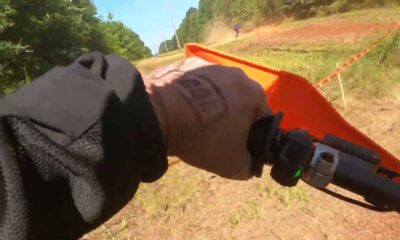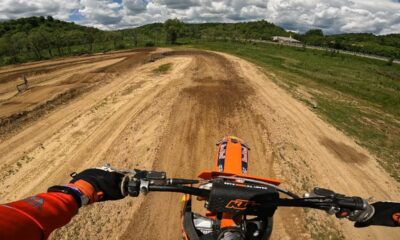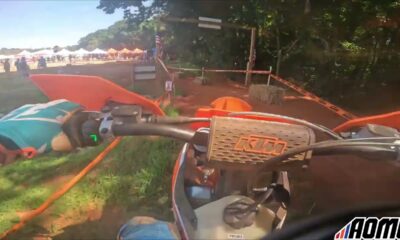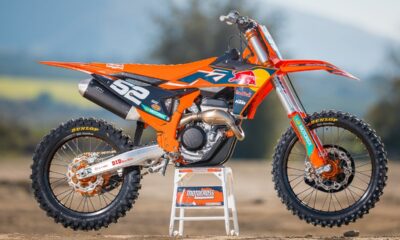News
“The Biggest Thing Setting Us Apart is the Engineering Behind Our Products” | Billy Wight on Luxon MX – Motocross Feature

There are so many aftermarket parts and accessory companies for consumers to choose from that sometimes it’s difficult to decide what you want to try, or even why you should. Luxon MX has been engineering triple clamps since 2014, but you may not have heard much about them. I wanted to sit down with the President and owner, Billy Wight, to have him tell us a bit about his company and what sets them apart.
For the full interview, check out the Vital MX podcast right here. If you’re interested in the condensed written version, scroll down just a bit further.
Jamie Guida – Vital MX: Great to finally talk to you Billy. How are things at Luxon MX?
Billy Wight: We’re getting ready for Supercross to kick off. So, it’s been nonstop crazy for a couple of months.
Vital MX: As I normally do, I want to get some of your background before we get into Luxon. You’re a mechanical engineer. I want to get into all that, but what is your background? Where did you grow up? How did you discover motocross? How long have you been into it? Give us a little bit of that information.
Billy: I grew up in a small town in the high desert of California called Ridgecrest. It’s kind of in the middle of nowhere, because the only reason it really exists is there’s a giant naval base there. My dad was an electrical engineer for the Navy DOD, which brought us out there. I was actually born out there. I grew up there until I was 22 or 23 and then moved to San Diego. Being in the middle of nowhere, you have prime access to off-road riding. I could leave my door just on a bicycle and go ride off in the hills or a dirt bike. So, that was pretty cool. I didn’t really get into moto until I was about 19, but I was racing mountain bikes at a fairly high level in the younger years. I worked at bicycle shops for a good chunk of my life. Mechanics, sales, and all that good stuff. I was always into the two wheeled thing. And as it kind of became apparent that I wasn’t going to make any money racing my mountain bike I kind of just got burnt out on it. At the same time, I was training way too much. And moto was kind of related, but still brand new. So, I picked up a used CR250 and started riding and really got hooked. I kind of just transitioned to moto from the mountain bike. Around 2003 or something I just quit riding bicycles and was just all about the motocross. Our closest track that people would know of at that time was Sunrise. But that’s now closed down. L.A.C.R. was an hour away.

Vital MX: Sunrise MX was my very first ever motocross race. My dad was stationed at Fort Irwin, so we were not too far away.
Billy: Yeah, that track was rad. It’s a shame it’s not running right now. I never really got into racing moto that much. I do it mostly when somebody talks me into doing it. I did it more for fun. I got burnt out on the racing with the mountain bike side. Moto has always been more of a fun thing for me. It’s still kind of competitive, obviously.
Vital MX: As I mentioned, you have a Mechanical Engineering degree from the University of San Diego. Super impressive. Obviously, you’re a very smart guy. When and where did your interest in engineering come from? You talked about your dad being an electrical engineer. Was that the foundation?
Billy: I mean, my dad was an electrical engineer, which is rather different than mechanical. I was growing up with bicycles and working in the bike shop. So, I was always wrenching on things and mechanical things always just gelled with me more. That’s really what kind of solidified that I was going to be into. The mechanical side is just working on physical items, you know. Whereas electrical’s a little bit more. Yeah, he.
Vital MX: As a kid were you a Legos, Tinker Toys kind of guy where you’d like to build stuff or does that even relate?
Billy: Oh, definitely, yeah. I had massive Lego sets and always building with that thing.
Vital MX: The website for Luxon MX (Luxonmx.com) says you guys are not just another triple clamp company because you’re engineers that ride. There’s the old saying, engineers don’t know how it really works in the real world. They can do it on a computer, but when it comes to the hands on, they don’t know what they’re doing”. I feel like you’re breaking that stereotype.
Billy: Yeah. I mean, there are a lot of engineers who are garbage engineers and they’re the ones responsible for that stereotype. I’ve been pretty well rounded as far as actually working on things mechanical, the mechanics side of things. Then you throw in the engineering experience and physical experience of riding bikes. I’ve had the whole gamut there with manufacturing. A lot of engineers, they sit in front of their computer all day and come up with designs, but they don’t have the manufacturing experience to understand what it takes to actually make the thing. And then they don’t have the mechanical experience to know what it takes to do maintenance on it and upkeep and fix things. They always leave out those important steps and then somewhere down the line you have somebody who’s a mechanic working on something and they’re like, “Oh, this engineer’s garbage. They don’t know what they’re doing”. A lot of times that’s true.
Vital MX: It’s cool that not only did you go to school for this, but when you design something, it’s user friendly.
Billy: And that’s been a big hurdle for us in our marketing just because we’re pushing the engineering side and then people just jump on us right away like, “You’re engineers, you’re pretentious, you don’t really know what you’re doing, full of yourselves”. And then we have to backtrack and explain, well, hey, we’re also riders. We know how to make things. We know how to work on things. We also do engineering.

Vital MX: Luxon MX is an offshoot of another company, Luxon, Engineering, which is a product development and mechanical engineering company. You guys are into all kinds of stuff. I was really interested in the spinal implants. And then I read something about genetic sequencing, that’s some high tech, totally different than motocross. So that’s really an interesting contrast.
Billy: Yeah, I started that company in 2007. So, that’s been running for quite some time and it’s just general mechanical engineering consulting. We work across the board with all different industries. We’re in San Diego, so we’ve got a lot of biotech companies. So that’s why you see all the genetic sequencing and stuff like that. We do a lot of off the wall stuff. We’ve done analysis on nuclear fusion reactors, and the Apple stores where there are giant glass doors, we did all the seismic analysis on those to make sure they wouldn’t fall down in an earthquake. Um, automotive projects, consumer electronics, all sorts of stuff.
Vital MX: Did Luxon MX come first, or is it something that you did after 2007 and Luxon Engineering?
Billy: The mx thing came about officially in 2014, and it really didn’t take off until 2019, 2020. It was always kind of a side project to the engineering work. What really happened is I was riding motocross a bunch up until 2004, 2005, but I ended up waking up in an ambulance for the second time. And the doctors told me, “Hey, you shouldn’t do this again, or you might not wake up”. So, I decided to finish my schooling, get my degrees and everything, and just stop riding. And I quit riding for quite some time. But then about 2012 or so, I got the bug again. I went out and got a YZ250 two-stroke and started riding that around. And then it just escalated to where I’m just riding as much as I can now. As I’m starting to ride again, I’ve got all this engineering experience and product development experience, and I’m looking at what’s available on the moto side. I saw some gaps that we could fill in. So around 2014, I formed the company and just started playing around with some designs and coming up with different solutions that were just not available or just very different from what the market had. And then as I put more and more time into it, we actually started releasing products. And I think we first released a product in 2017. It was still very much a side project to the engineering business. And now it’s about equal to the engineering side with time commitments and income and such.
Vital MX: You said there were a few years between the startup and it taking off. Was that just developing and figuring out what works or is it partly getting the word out and getting people that will test the product and use the product?
Billy: It’s a little bit of everything, really. The engineering business is so different from the motocross business. There was a giant learning curve as far as marketing. The way we market our engineering services is very different from marketing a set of triple clamps to a consumer. So, doing that, building the relationships with all the magazines forums and building everything up. Getting to meet some race teams and racers, getting product in their hands, etc.. So, it’s tough to just ramp that up immediately.
Vital MX: I want to know what sets Luxon apart from some of the other companies. There are tons of well-known triple clamp companies. Explain why what you do with the CNC machined products are better than, say, a cast or forged OEM, or even some of the other aftermarket companies out there. What sets you apart?
Billy: Well, the biggest thing setting us apart is the engineering behind our products. Having the engineering company means that we had all the infrastructure from an engineering side as far as capabilities go. And that infrastructure is incredibly expensive. I don’t know of any aftermarket moto company or even some of the OEMs that have some of the software and analysis and design capabilities that we do. And there’s no way we could do it unless we had the engineering company as well. We’re able to run some very advanced optimization schemes and analysis all in the computer to come up with a design that’s going to function better than the standard that’s out there now. Obviously, we prototype those and physically test them and get them on the track to validate that all the analysis works and everything. But that chunk of analysis and optimization really pushes us way ahead of where we would be if we just kind of did the guess and check design and test route.

Vital MX: With this software you can create a program that mimics how it would work in the real world and shows where the forces will go?
Billy: That’s pretty much it. You can run these simulations in the computer that basically simulate riding. So, I have the full front end of a motorcycle modeled up in my computer, and you can simulate the forces from a set of whoops, or a big impact, or turning or basically anything that the parts are going to experience and see how they respond. It’s all just a bunch of math the computer’s chugging through.
Vital MX: Your website says Luxon MX can focus on the full potential of a design. There’s a difference in engineering something or just copying the OEM’s design. You can make tweaks that don’t affect the structural integrity, but maybe it’s lighter, maybe it just works better. I assume that’s the overall idea of what you’re talking about.
Billy: Yeah, exactly. Engineering is the understanding, the how and why behind how something works. A regular designer doesn’t have that capability. We know why the changes we’re making are creating a better ride or not a better ride, depending on if it was a bad change or not. We’re able to leverage that information in creating a design that’s much better than somebody who doesn’t have that knowledge.
Vital MX: Some of these companies, they’re basically machine shops, right? They’re sort of copying the OEM design with minimal changes.
Billy: Yeah. And I mean, kind of venturing into a discussion that kind of sounds pretentious, but trying not to. But most companies out there, you can just look at it. If you take your stock set of triple clamps and set it right next to theirs, they look very similar. They’re generally flat on top. You flip it over and materials removed and there’s ribs on the bottom. If you take a set of our clamps and set it right there, they’re completely different looking and they’re not different looking just to be different. They’re different looking because that’s what the optimization software told us would be the best design for the loading that they experience.

Vital MX: There are some examples of this on your website.
Billy: The examples that we show, and generally these other companies, they’re not making bad product. They’re just making something that works because it’s basically a copy of stock and maybe they throw in some extra features that make it a little bit better. Oftentimes they’re better than, say, stock. They’re just not as good as they could be. And that’s the difference that we’re adding is all this extra upfront engineering and testing simulation creates a product that, yes, it looks very different, but it’s that way for a reason, and that’s to make it that extra bit better than everybody else is out there right now.
Vital MX: And the real-world testing is a good reason a consumer should think about using your product. You guys can build something and go test is, this works, or this doesn’t work, and you can go right back and fix it yourself.
Billy: Definitely. I mean, I’m on the track riding with these parts and I’m no amazing rider. I’m a vet intermediate level. But I can get feedback from my own feelings on the track. Then we also work with a lot of professional riders, a lot of riders of different levels who can give us feedback. And that’s really important too, because if you’re only testing with top pros, they’re going to want something very different than what the average rider is going to want.
Vital MX: How do you meet those two separate needs?
Billy: Well, we’re working on that. Coming up in the future, our product line is going to have two different clamp offerings. One more aimed at the really fast pro guys and then more aimed at the general consumer.
Vital MX: What would be different about a particular clamp for two different skill levels.
Billy: Generally, the really fast and pro riders want something that’s stiffer, just all around stiffer. They want to feel more connected to the front wheel. They’re trying to hit lines that are separated by millimeters. And they’re willing to give up a comfortable ride for that. The slower riders who are putting less load on the clamps, they want more comfort overall. So, they’re going to want more flex in various directions. It just ends up being two different designs to achieve the stiffness goals and the two different clamps. The other thing is pricing. And that kind of goes with both of it, our stuff is expensive, and we realize that. These new products I’m talking about are a ways down the road. So, nobody hold out on buying anything just yet. We’re going to have a regular version and then a pro version. And the pro version is going to be more expensive than the stuff we sell now because it’s going to have a lot more options and other things that I don’t really want to discuss at this point. The regular version will be cheaper than what we have now. It’s a little bit more accessible, but still similar performance. What we have now is actually, I wouldn’t say it’ll be obsolete by any means with these new products, it’ll be somewhere in between.

Vital MX: How does the marketing side work for Luxon MX?
Billy: Like I was saying earlier, the marketing side of things is very different from the engineering stuff that I’ve been doing for many years. There was a big learning curve just to figure out what we needed to do there. Ignoring that, though, the marketing is a pretty good chunk of it. I’ve got a couple of guys helping out with that. A lot of times there’s just trust placed in the outlets like you guys or magazines, etc.. to push out some good marketing. Really the stuff that works best for us is testing and reviews where it’s not like, “Oh, here’s a cool picture of our product on a pro’s bike”. It’s somebody giving actual feedback like, “Hey, we rode this, and it works great”. So, we’re trying to get that more out there than just actual advertisements, you know?
Vital MX: What’s the future for Luxon? I know in ’22 you guys were with Muc-Off/FXR/ClubMX Yammaha, team PRMX, and a bunch of privateers. Are those teams still on board for 23?
Billy: Yeah, for the most part. I mean, we’ve had some people switching around. We lost some teams and we gained some. In 2019 we had one rider, one pro rider, Stank Dog. That was kind of funny. I had very few connections in the pro ranks, and I just sent him an Instagram message and said, “Hey, you want to run our clamps? How about I just send you a set? If you try them and you like them, you can run them. If you don’t like them, then just tell us ‘No’”. And he’s like, “Yeah, let’s do it”. So, I shot him over a set of clamps, and he loved them. So, we’ve been working with him ever since 2019. Then 2020 came along. We had two professional riders. In 2021 we had 15. Then inm2022, there were 44 pro riders on our parts. We didn’t start out the year with 44. That kind of just happened throughout the year. We got some fill in riders and different teams and whatnot, but we still started with a big chunk more than we had in ‘21. For 2023, we’re currently at 28 riders. As we get some fill in riders and whatnot on different teams, that’ll grow as well. I kind of went nuts last year. That was a lot of product out there and a lot of expense.
Vital MX: I was wondering how meeting the demands for those teams quantity wise was, how easy that was.
Billy: It’s tough. For every rider, they’re going to need one race set of clamps, one practice set, and then you need at least one set for the team to have as a spare. And then if somebody has a massive crash and breaks something or bends something, then you’ve got to send them out another set and repeat for all your teams and riders, etc.. It adds up real fast. Especially as a company growing like we are with a lot of expenses and not much income coming in, then that gets hard. So, this year we tried to scale it down a little bit, but we’re still going pretty big.

Vital MX: So, what is the five-year plan? Do you have something that you’re looking towards? Do you have a goal?
Billy: Loose goals. We want to keep up with the really good teams that we’re working with and then break into some more factory level efforts, which has been incredibly hard to do. But we’re gaining more and more recognition and people are seeing that, “Hey, the Club guys are running our stuff and they love them. Maybe we should give these a shot”. I’m hoping to reduce our overall budget as far as giving away clamps to these pro riders, and just focusing more on the real fast guys. Of course, I want to support all the privateers and everything. It’s just at some point you’ve got to say, “We can’t do free clamps for you. You’re making it to the night show or just barely making the LCQ kind of thing. That’s amazing. We just don’t have the money to support 50 riders”. Generally, we give a pretty big price break to these guys. If they’re a true professional rider who’s going to the Supercross we’ll absolutely help out with some sort of price break, at least cover our costs on it. Then the super-fast guys who are really making a name for themselves and giving us exposure, then yeah, they’re getting free stuff.
News
Save Of The Day: Hymas Toughs It Out
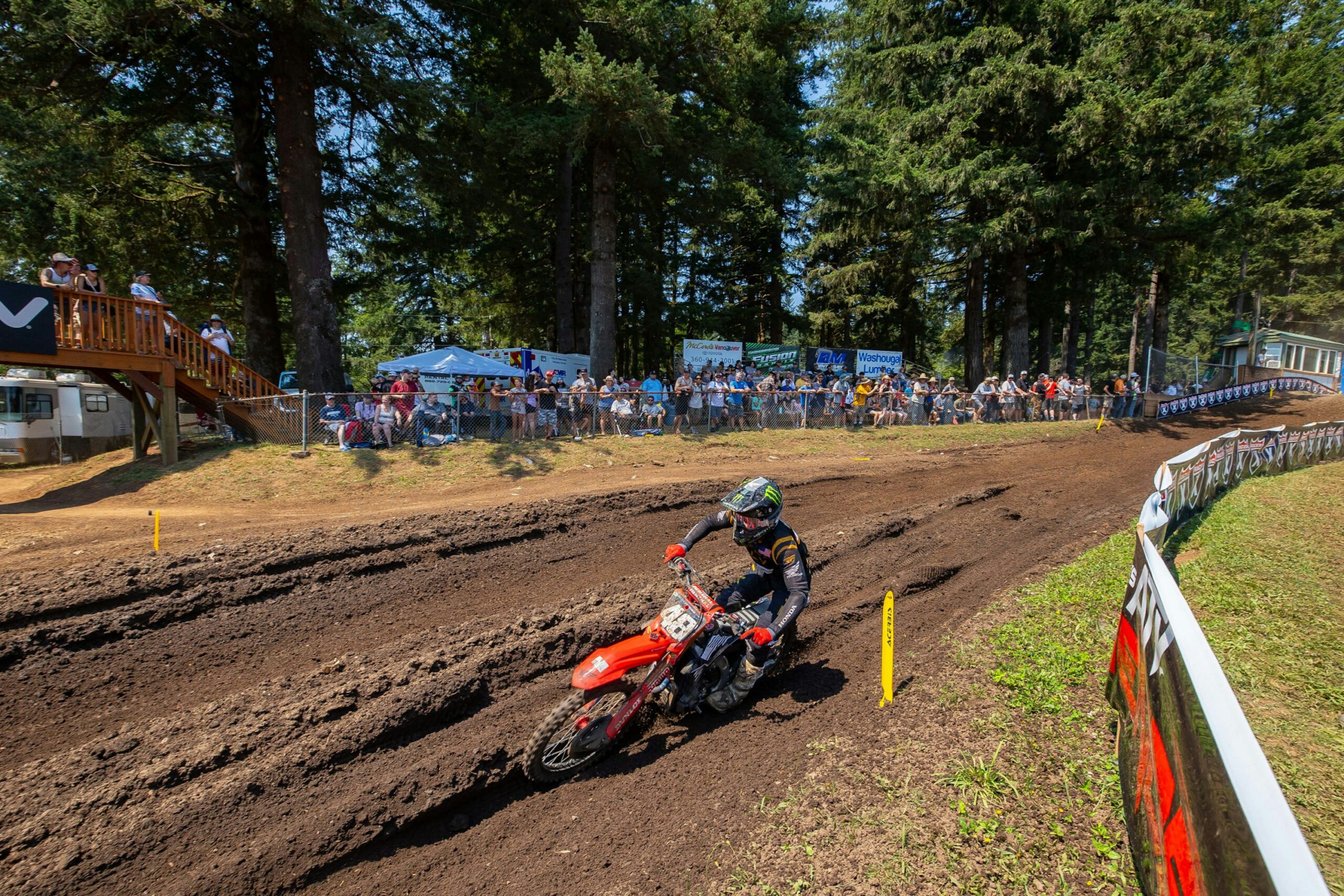
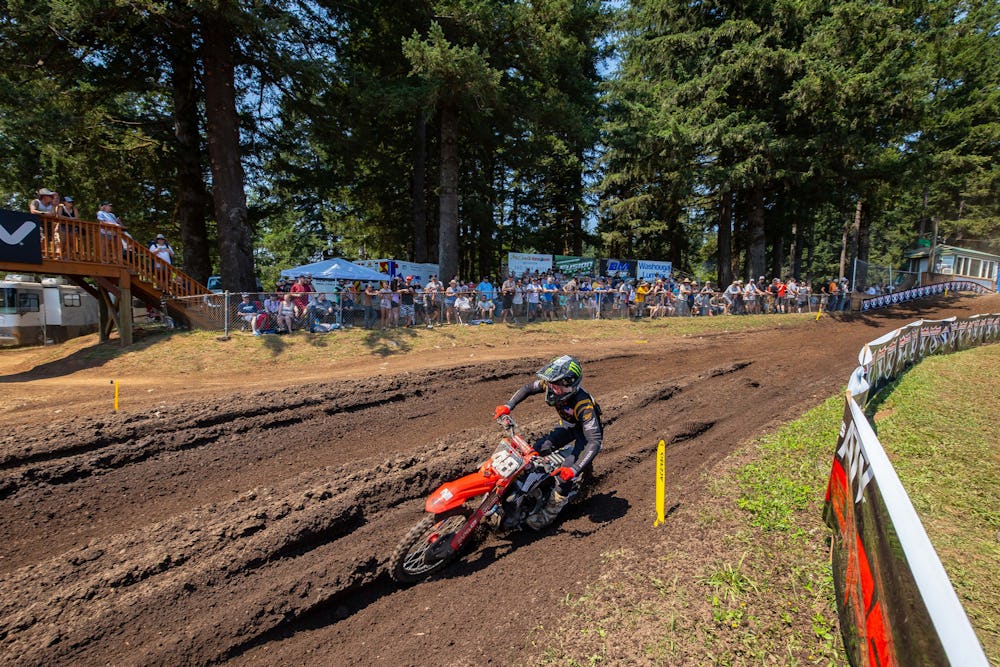
How to score 24 points when you weren’t sure you could race.
Source link
News
GP Report: MXGP of Czech Republic
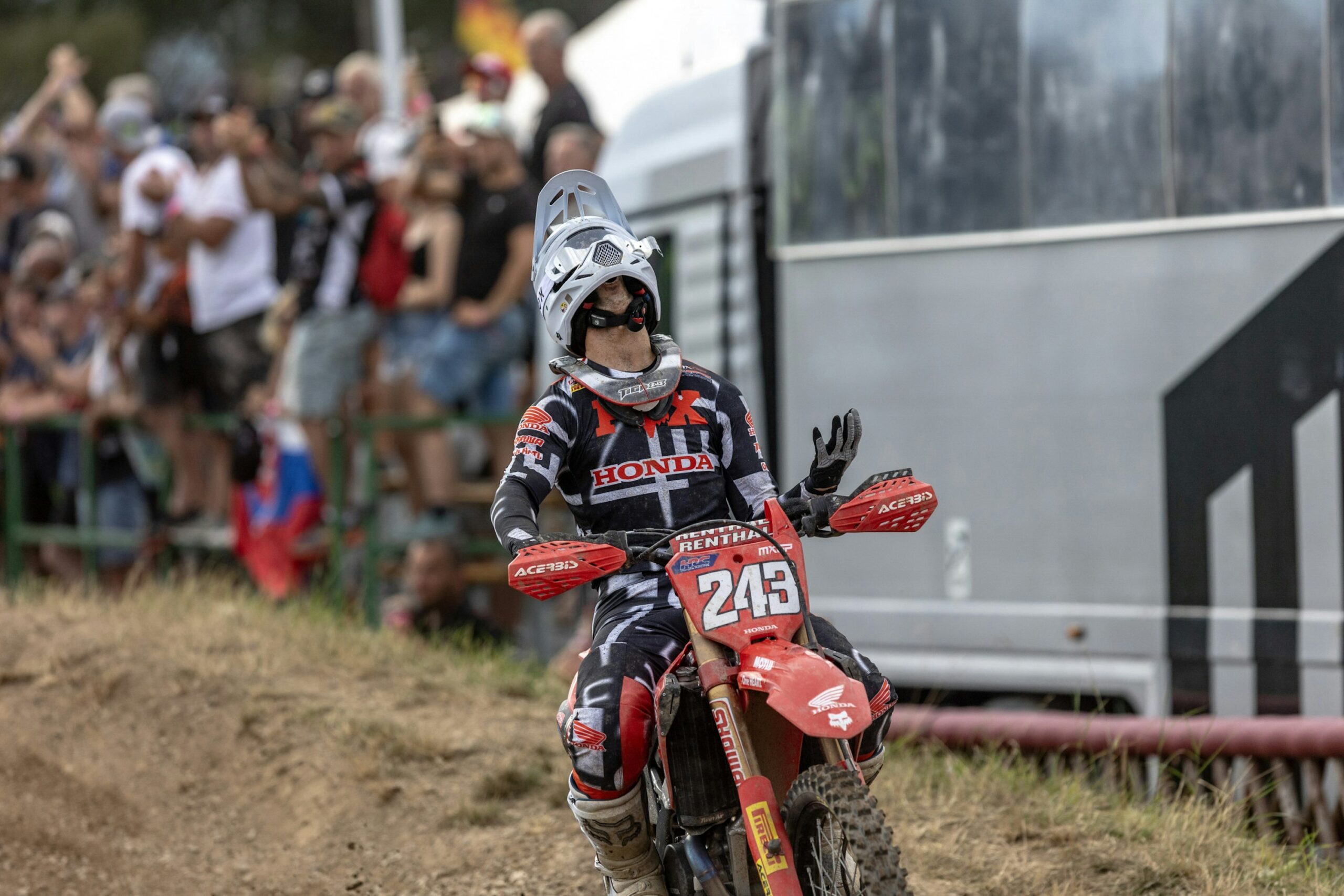
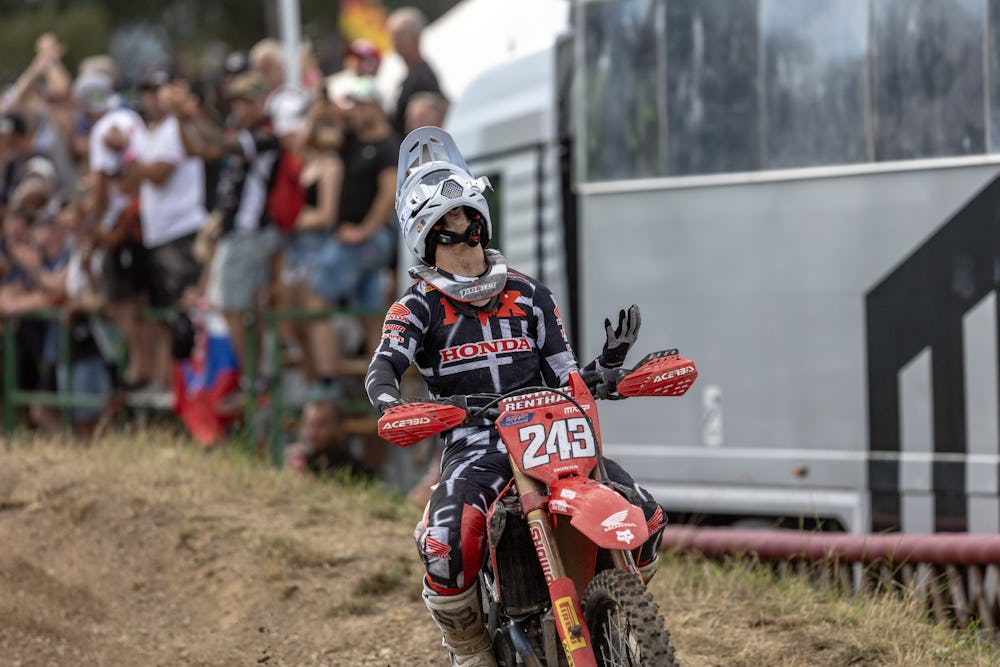
Exciting racing in Loket sees both championship leaders (Gajser and de Wolf) emerge victorious.
Source link
News
Garrett Marchbanks, ClubMX End Relationship
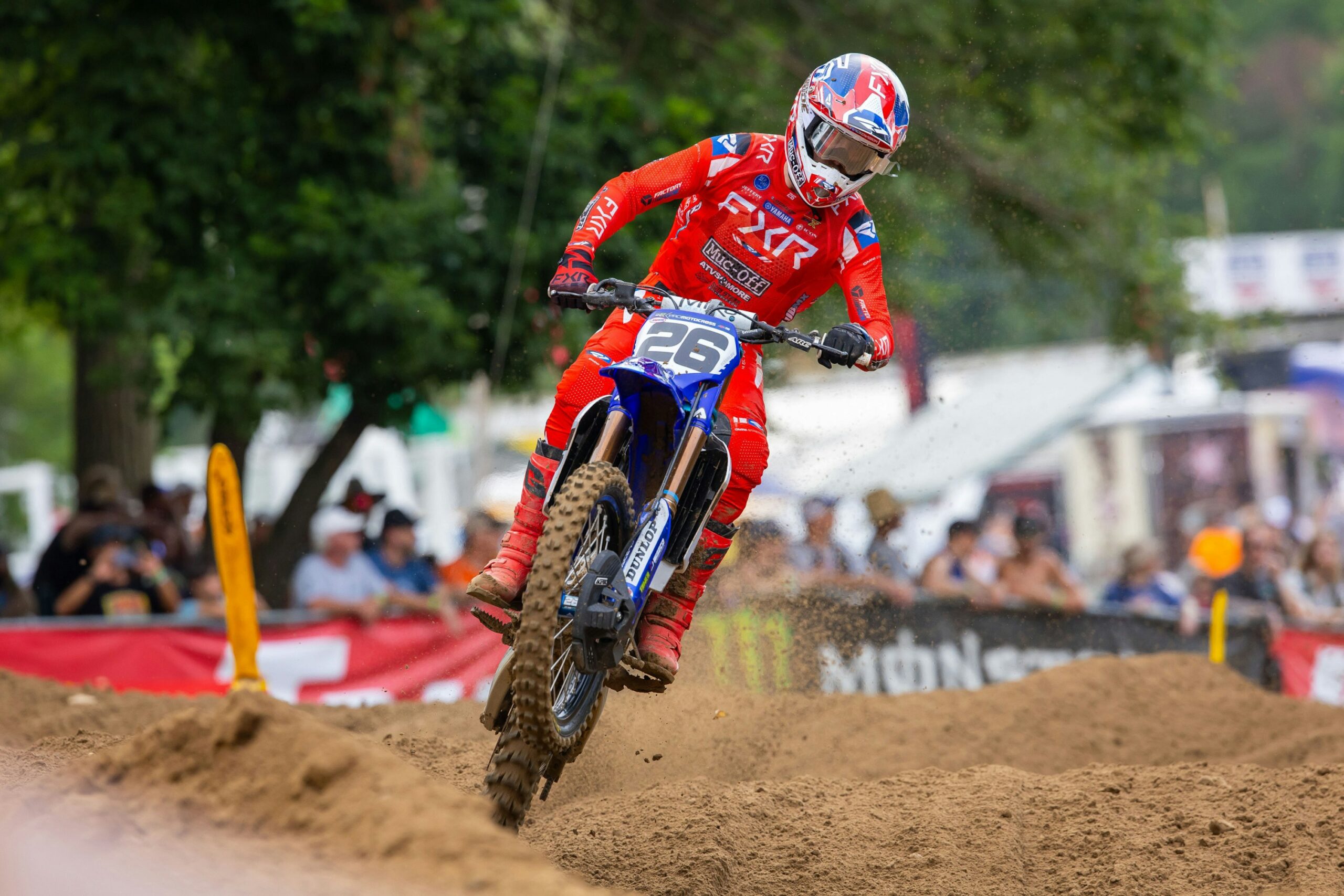
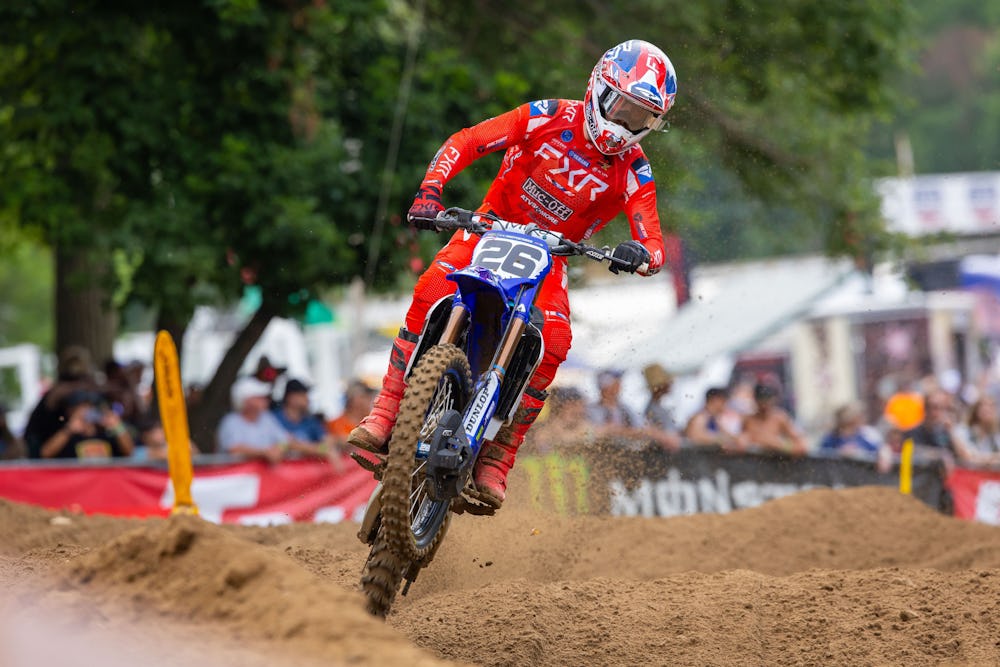
Marchbanks is signed with Monster Energy Pro Circuit Kawasaki for 2025.
Source link
-
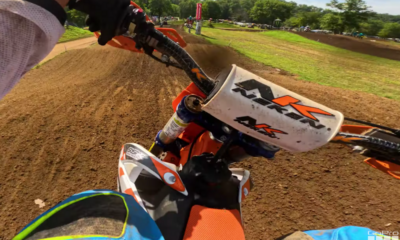
 News12 months ago
News12 months agoWatch: GoPro Lap of Loretta Lynn’s Practice with Dakota Baker, Jeff Emig
-
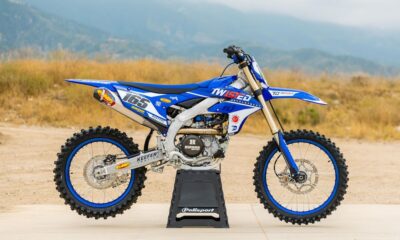
 News11 months ago
News11 months agoRacer X Films: 2023 Yamaha YZ450F Garage Build
-
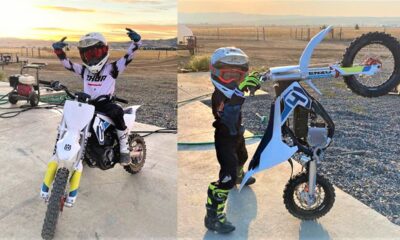
 News1 year ago
News1 year ago7 Year Old Rider Is A Motocross Superstar
-
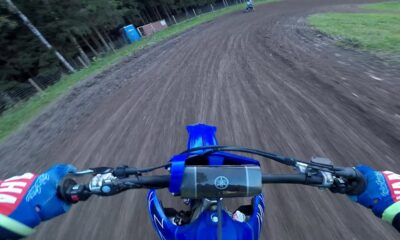
 News12 months ago
News12 months agoYamaha YZ 250 F 2022 test ride
-

 News11 months ago
News11 months agoThe 2022 Yamaha YZ250FX, YZ450FX, YZ250X and YZ125X—Born to compete
-

 News11 months ago
News11 months agoHangtown Motocross Classic Lucas Oil Race Recap | 2022 Pro Motocross
-
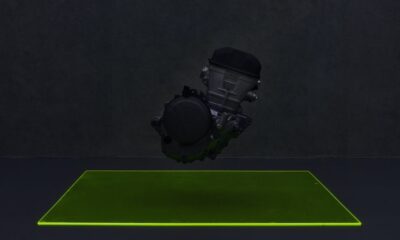
 News12 months ago
News12 months agoWatch: Triumph’s Unveils New Motocross Engine
-
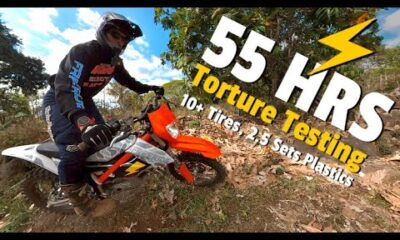
 News12 months ago
News12 months agoFreeride E-XC Review (2022 Edition)

